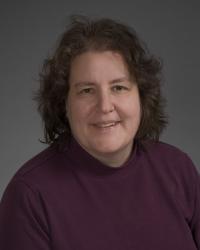
Contact Information
Fields of Interest
Biography
I am a historian of Russia and the Soviet Union. Over the course of my career, I have become increasingly interested in the USSR's involvement in transnational movements and processes, whether political, social, cultural, or economic. I have also pursued research interests in the history of Communism and world history. In addition to the books mentioned below, I've published articles on a number of topics in Soviet social and political history.
My first book, Power and the Sacred in Revolutionary Russia: Religious Activists in the Village (Pennsylvania State University Press, 1997), examined the Bolshevik project of cultural transformation through a case study of peasants' responses to the Soviet anti-religious campaign. In 1999, the book was awarded Honorable Mention for the Hans Rosenhaupt Memorial Book Prize from the Woodrow Wilson National Fellowship Foundation.
In 2011, I published The Communist Experience in the Twentieth Century: A Global History through Sources (Oxford University Press. Through a collection of carefully selected documents, some presented for the first time in English translation, the book seeks to provide an inside look at how people around the world subjectively experienced, and contributed to, global communism.
My current book project is entitled The Return: From the Soviet Union to Franco’s Spain in the Cold War, under contract with Oxford University Press, England.
The Return reveals the unrecognized political, social, and cultural shockwaves of the Cold War repatriation of Spanish nationals who had been catapulted to the USSR as refugees and exiles in the Spanish Civil War, or as soldiers who fought for the Nazi Wehrmacht in World War II. What makes the Spanish case distinct with respect to numerous others involving post-World War II repatriations from the USSR is that it involved civilians and military personnel, including prisoners of war. As well, the repatriation of Spanish nationals constituted the largest repatriation of civilians from the USSR to a country in Western Europe during the Cold War. Although the repatriation of Spaniards—both Red Army POWs and civilians—began during World War II, albeit in small numbers, the return of the Spaniards became an international issue beginning in the late 1940s, just as the Cold War was heating up. The book focuses on the seven expeditions of repatriates from the USSR to Franco's Spain in the second half of the 1950s.
Research
Selected Research
- Young, Glennys. The Communist Experience in the Twentieth Century: A Global History through Sources. New York: Oxford University Press, 2011. Print.
- Young, Glennys. Power and the Sacred in Revolutionary Russia: Religious Activists in the Village. University Park, Pa.: Pennsylvania State University Press, 1997. Print.
Research Advised
- Johnson, Eric. "'Our Dear Kazan': Urban Initiatives and Imperial Legacies, 1774-1860." PhD diss., University of Washington, 2017.
- Duishembieva, Jipar. "Visions of Community: Literary Culture and Social Change among the Northern Kyrgyz, 1856-1924." PhD diss., University of Washington, 2015.
- Swain, Amanda. A Death Transformed: The Political and Social Consequences of Romas Kalanta's Self-Immolation, Soviet Lithuania, 1972. Diss. University of Washington, 2013. Chair: Glennys Young.
- Stone, Andrew. Growing Up Soviet? The Orphans of Stalin's Revolution and Understanding the Soviet Self. Diss. University of Washington, 2012. Chair: Glennys Young.
- Frank, William. Vse na lyzhi!: The Culture of Skiing in Russia and the Development of Soviet Biathlon, 1888 to 1991. Diss. University of Washington, 2011. Chair: Glennys Young.
- Brendan McElmeel, "Comrades in Love: Intimacy and Morality in Soviet Institutions and Everyday Life, 1950s-1970s." PhD diss., University of Washington, (in progress).
Courses Taught
Spring 2024
Autumn 2022
Spring 2020
Spring 2019
Graduate Study Areas
Divisions
Division: Russia & Central Asia
Graduate study is offered on a wide range of topics pertaining to the history of Russia and the USSR since 1861. Content of the field is determined through consultation with the professor. Students may choose to focus on a "modern Russia" field from ca. 1861 to 1991 or to prepare a field that focuses only on the Soviet period (1917 to 1991) and its legacy. No matter what the chronological parameters of the field are, students are expected to master basic historiography, reading a common "canon" of core works; but they are also encouraged and expected to prepare specific emphases (e.g., gender, religion, ethnicity and nationalism, foreign policy, to give just a few of many possible thematic examples) that will be useful to them in teaching and/or research. But the specific emphases on which students focus may also be chronological (e.g., the 1940s) or theoretical (e.g., historiography that engages, both positively and critically, with the "new cultural history.")
Students prepare a field on "modern" or Soviet Russia for different reasons. Such a field will be very helpful for teaching surveys on European and world history. Because the historiography of the Soviet period has become especially innovative since 1991, especially in the way that it has drawn upon a variety of theoretical perspectives, preparing such a field could be of considerable value to those whose primary field of research pertains to other polities shaped by Marxism-Leninism.
Students will not be expected to read Russian, or other pertinent languages (e.g., Ukrainian, Uzbek, Estonian, among many others) unless their dissertation projects require reading proficiency in one of the languages of the region.